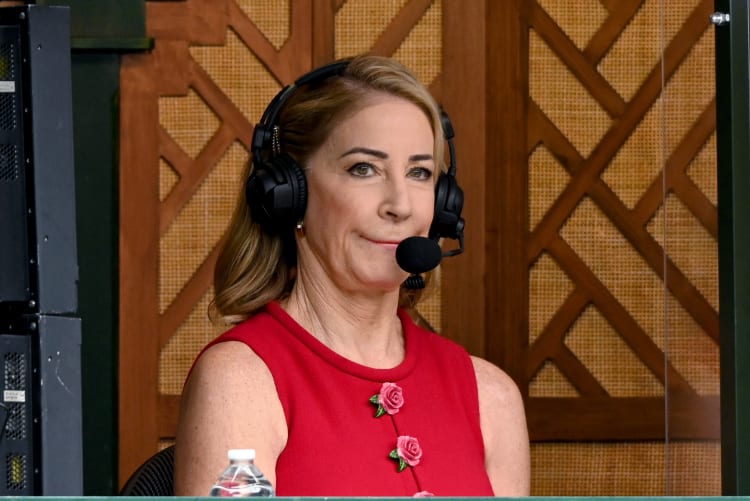Chris Evert: What really happened during Coco Gauff vs Naomi Osaka clash?

Fans Accuse Chris Evert of Favoritism During Gauff vs. Osaka Clash
Naomi Osaka reminded the tennis world of her champion pedigree on Monday afternoon, producing a commanding victory over Coco Gauff in the Round of 16. The Japanese star, a four-time Grand Slam winner, needed just over an hour to dispatch her American opponent in straight sets, 6-3, 6-2, advancing with a performance that suggested she is firmly back among the sport’s elite.
What should have been a celebration of Osaka’s resurgence, however, quickly became overshadowed by controversy in the broadcast booth. Viewers tuning in on ESPN voiced frustration that analyst Chris Evert, an 18-time Grand Slam champion herself, appeared to dwell extensively on Gauff’s struggles rather than acknowledging Osaka’s brilliance.
Evert, who has been a fixture in ESPN’s coverage since 2011, referenced Gauff’s emotional challenges throughout the week, her ongoing adjustments to her serve, and the intensity of pressure following her French Open title earlier this year. While these points added context to Gauff’s performance, many fans felt they came at the expense of appreciating Osaka’s dominance.
Social media platforms lit up with criticism, with numerous fans accusing Evert of favoritism. “It felt like we were watching two different matches,” one user posted. “Osaka was near flawless, but the commentary kept circling back to Coco’s emotions.” Others suggested that the subdued atmosphere at Arthur Ashe Stadium mirrored the booth, with applause often muted despite Osaka’s shot-making clinic.
The debate touches on a long-running conversation in sports broadcasting about impartiality. Commentators often walk a fine line between providing player insight and inadvertently appearing biased, especially when national allegiances or personal relationships with athletes are in play.
Lost in the controversy was the significance of Osaka’s achievement. Returning to top-tier competition after becoming a mother, she looked sharp and decisive, her serve clicking and groundstrokes punishing. With the win, Osaka secured her place in the quarterfinals, reigniting speculation that she could add a fifth Grand Slam trophy to her collection.
For Gauff, the loss is part of the natural highs and lows of a young career still in its early chapters. At just 21, she has already proven her capacity to win at the sport’s highest levels. While this week may have tested her emotionally, her potential remains unquestioned.
As for Evert, the backlash underscores how closely audiences monitor commentary. With fans increasingly vocal on social media, networks may face growing pressure to strike a balance that acknowledges all players equally, regardless of nationality or narrative.
For now, Osaka moves on with momentum, her focus firmly on the next challenge. And as she reclaims her place in the spotlight, it’s clear that Monday’s match was less about Gauff’s struggles and more about Osaka’s reminder to the tennis world: she’s still a force to be reckoned with.

